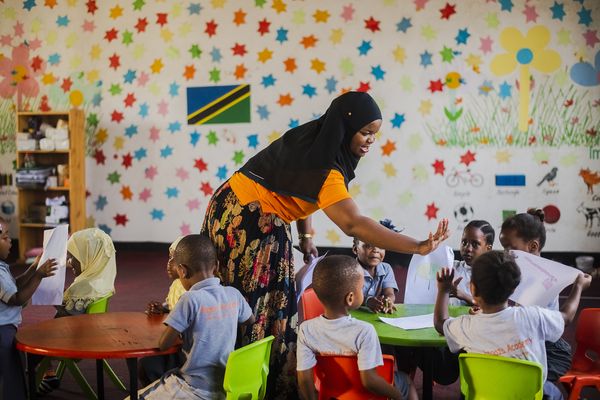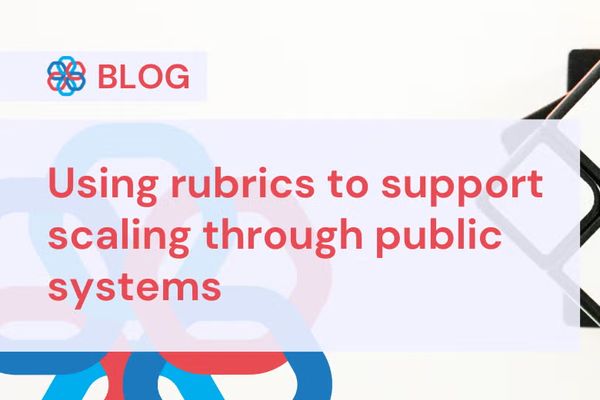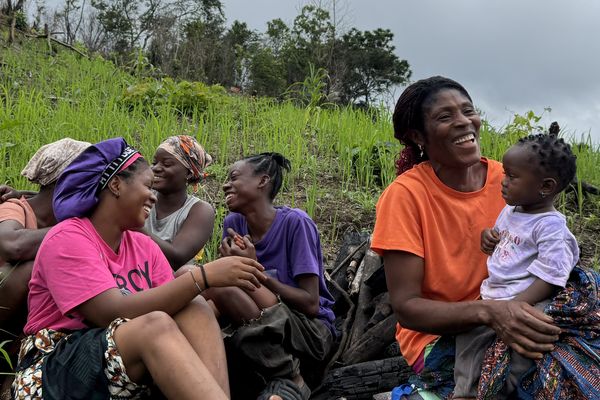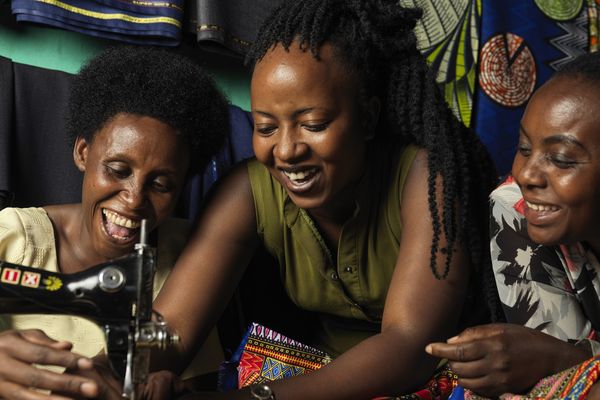Early childhood is a critical time of life. 90% of a child’s brain develops by the age of five – but only when they grow up in safe, nurturing, and stimulating environments.
Without quality childcare, young children face delays in cognitive, social, and emotional development. In the long-term it creates difficulties in learning, managing emotions, and building healthy relationships.
Across East Africa, childcare remains out of reach for most families. Fewer than 1 in 10 children in Uganda aged 3–5 are enrolled in registered pre-primary schools. In Tanzania, 80% of children miss out from early learning. Formal childcare services are often too expensive, while informal options are inconsistent and sometimes unsafe. In low-income countries, childcare needs are widely regarded as a barrier to women’s employment.
A new solution: Childcare as a microenterprise
BRAC is piloting a community-driven childcare model in Tanzania and Uganda, using a play-based approach. These childcare microenterprises are run by young women from the community.
Childcare as a livelihood is being piloted in selected communities, with over 100 young women from BRAC’s youth clubs in the two countries.
These youth clubs are part of an ambitious programme, with the bold commitment to equip 1.2 million adolescent girls and young women, with age-appropriate entrepreneurship and life-skills training.
Every week, young women gather in these clubs to learn tools to start and scale their own businesses. The childcare microenterprise was introduced as one of the livelihood pathways, serving a two-fold purpose: to create dignified livelihoods for young women while introducing affordable childcare to families.
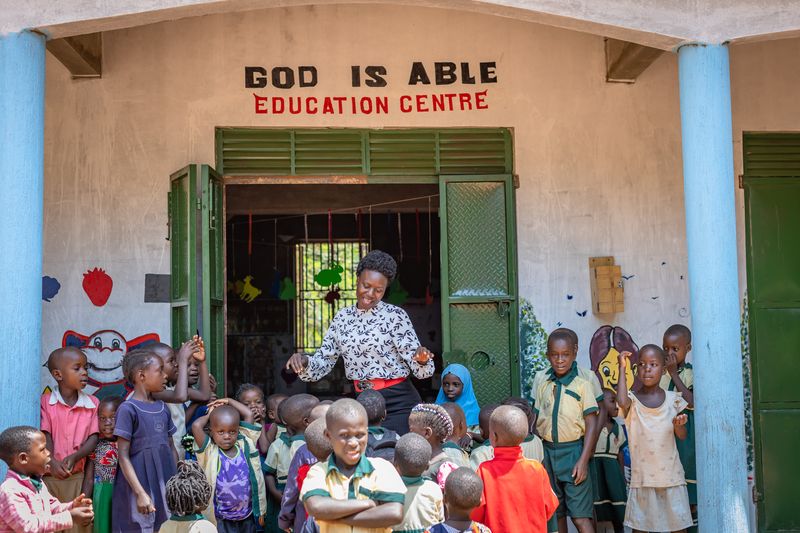
A childcare centre in Uganda run by a trained play leader who graduated from a BRAC youth club.
Photo: Twal Photography
How it works
Young women who select childcare as their preferred livelihood are trained as childcare microentrepreneurs, and undergo pedagogical training based on the Play Lab model, followed by business management training.
The aspiring entrepreneurs are then supported with setting up the childcare centre with appropriate learning materials along with one-year rent for the space paid directly to the landlord. The journey begins with BRAC staff providing close mentorship on managing the centres.
Currently more than 100 childcare microentrepreneurs are running their own centres, providing quality, low-cost, and affordable childcare. In Tanzania where about 8 in every 10 girls and women aged 15 and above are either working or actively looking for work, this poses the opportunity to create a wider ripple of change in underserved communities.
The foundation: Learning powered by the community
The childcare enterprise model builds on BRAC’s proven experience in community-powered play labs.
BRAC first brought its early childhood development model from Bangladesh to East Africa in 2016. Research from Bangladesh showed that BRAC’s play-based approach — when centred on the community — closed long-standing preparedness gaps between children from different socioeconomic backgrounds, and that these gains were sustainable and scalable.
In Uganda and Tanzania, the model was adapted to local contexts. The goal was the same – to give every child under five the best possible start in life. And it starts with play. Families and caregivers help decide where centres would be located, contribute labour and materials, and help select play leaders — young women trained to run the centres. Parents take turns supporting the centres, ensuring safety and belonging.

Children in a play lab in Tanzania.
Photo: Sarker Protick
The impact was tangible. Children became more expressive, confident, and socially active.
“My youngest son, who has been going to the play lab, is now so expressive and speaks with clarity. A year ago he was shy and barely spoke to anyone”, shares a parent from Dar es Salaam, Tanzania.
The community-led success laid the groundwork for the childcare microenterprise model — proving that when families value early learning, they invest in it.
As we continue to pilot and perfect this microenterprise before we take it to scale, several insights have emerged:
- Locally-adapted solutions work. When childcare reflects local needs and realities, communities adopt and sustain it.
- Community ownership drives longevity. When parents help build, run, and co-govern childcare spaces, they stay invested.
- Girls and women are powerful catalysts. With the right tools, young women transform not only their own lives but the wellbeing of entire communities.
Mariam Simba is one of over 100 childcare microentrepreneurs leading this change in Tanzania and Uganda. In Nianjema village of Bagamoyo, in eastern Tanzania, she is building a new identity as an educator and an entrepreneur. Her play lab, which started with seven children, now welcomes over 80.
She is earning an income, employing women in her community, and giving hundreds of parents the opportunity to have affordable early learning for their children.
Watch below how Mariam started her journey as a childcare entrepreneur.
Written by: Maeesha Saiara, Senior Manager, Knowledge Management, Early Childhood Development and Education and Shituma Tajrin, Senior Manager, Programme Communications
Edited by: Sameeha Suraiya Choudhury, Lead, Strategic Content
